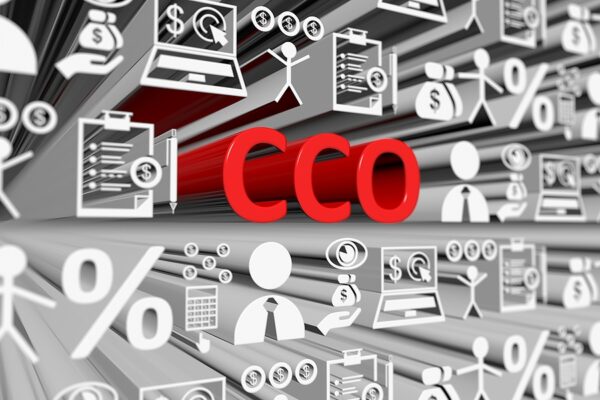Fonterra CEO Andrew Ferrier meets groups of about 40 information-hungry supplier farmers half dozen times year. He uses these “understanding the cooperative” sessions to explain the company’s strategy, provide global market insights and “engage” these shareholders in discussions about where the company is headed.
“We are really training future governors of the business,” he says. “A continuum like ours starts by getting shareholders to understand the business better. We also have governance development programmes for those interested in moving on to the Shareholders’ Council and perhaps the board.
“As cooperative we must over-communicate so that somewhere in excess of 30,000 very interested people know where we are going and why. We have to keep everyone on the team,” he adds. “You can never make every individual happy but you must take the stakeholders with you. That always comes down to communication. It’s not rocket science. good strategy well executed and properly communicated keeps everyone focused.”
Andrew Ferrier’s eight years at the helm of New Zealand’s largest single enterprise have, by most performance measures, been very successful. Farmers are notoriously hard cattle to muster. But the work Ferrier and his board have put into governing Fonterra responsibly has, he believes, delivered broad spectrum of positive results.
Responsible governance at Fonterra is about “sustainability of the cooperative for generations to come”. Everything done in the oversight and management of the business is designed to ensure the cooperative thrives into the future for its dairy farmer suppliers.
Cultural alignment
“To achieve that we must align our policies, practices, procedures and culture,” says Ferrier. “And as co-op, it grounds first and foremost in culture. We have cooperative principles which dictate the key things about what the cooperative is – things like farmers must be suppliers and investors and must control the cooperative. It sets the basic ownership and governance guidelines.
“At the top end, at board level, we are governed no differently from any other major, global listed enterprise. We follow the same governance procedures and policies with the exception that we can never have fully independent board. We have nine farmer directors and four appointed [independent] directors.”
The board doesn’t fit the classic definition of “independent”, but it is totally relevant to the cooperative, says Ferrier. “In some ways we have stronger governance because of the hands-on approach to electing our farmer directors.”
Ferrier accepts that being cooperative has its pros and cons. “But on balance, it is enormously beneficial for Fonterra. I wouldn’t want to see New Zealand’s largest company being anything but cooperative. The model fits the industry and the nation very well. The only real negative is that we don’t have unlimited access to capital. On the other hand, we are becoming more creative about how we run the business and tweak our capital structure – so even that is less of negative.
“We are fundamentally better at what we do because the business is linked right back to the farmer. We focus therefore on being around for future generations. We are not business that constantly looks to meet the next quarter’s target.
“Having the link back to the farmer we have our brand and our credibility lined up, not just to ensure that we run the business through appropriate governance but that our farmers do too. We have say in environmental compliance, animal welfare and all aspects of the organisation. This ensures Fonterra is seen in the best possible light by customers and consumers around the world. co-op can do that because it manages the entire supply chain and not just part of it.”
Values set
According to Ferrier, the company’s culture is defined by it being cooperative. Its cultivation of cooperative spirit sits atop the four value pillars upon which the company’s sustainable strategy rests:
• Cooperative spirit
• Do what’s right
• Challenge boundaries
• Make it happen.
“These values are designed to help us create the right kind of culture to deliver our strategic plan for the future,” he says. “The first two are about how people in the organisation should work. They should be team players and they should be honest, forthright and ethical. The next two are about how we want to perform. Always look for new ways of doing things and then make sure things are done. Our governance framework is designed to ensure these things happen.”
Fonterra has written code of ethics. It spells out the performance standards expected of every employee. It also points out ways in which employees can seek assistance or report misdemeanours. The senior executive team, including the CEO, act as the ethics committee. “We don’t delegate that to anyone else,” Ferrier says. “We take ethics and integrity very seriously.
“A values set is important to help everyone understand who they are and what they stand for. Then it is critical to be quite ruthless about ensuring that everyone knows that is how they must act. If all the company’s policies and procedures drive toward that, then you’ll pursue the business in the shareholders’ interests and govern the business in the same way. That may be very high level approach, but it underpins everything we do,” he adds.
Ferrier concedes that delivering Fonterra from its rivalry-wracked founding years to its present-day iteration of more united and consistently high-performing enterprise has been “challenging”. He did not, he says, realise how much of challenge it would be until he arrived in the job.
The company had to break down the rampant distrust that existed between the two competing dairy cooperatives – Kiwi and NZ Dairy – and the New Zealand Dairy Board, which the cooperatives disliked even more than they disliked each other.
“One of the smart things they did was to bring in an independent CEO who had no allegiances to anybody other than the board. Whether it was me or anyone else, the fact that it was an outsider was fundamentally important step in the process of turning things around. Even so, it has only been in about the last three years that things have really come together.”
Building new cooperative, rather than competitive, culture in the organisation was, Ferrier believes, fundamental to fixing Fonterra. “We had to find and agree on the values that would underpin the enterprise and everyone had to buy in to, and live by them. The process has been enormously unifying.”
The first four of Ferrier’s eight years at the helm were, he says, dominated by the need to lift and secure the company’s trading performance. “We had to get our performance up to certain level before we could increase our attention on building culture. By investing more time and resources in our culture now we are securing the business for the long term.”
Of all the responsible governance initiatives Fonterra has embraced and implemented over the past eight years, Ferrier is particularly proud of what its health and safety initiatives have delivered.
Fonterra’s “safety for life” programme was kick-started around 2005 after the company invited DuPont’s safety consulting business to audit its health and safety record and procedures. “It wasn’t pretty sight,” says Ferrier.
One of the easiest accident numbers to track is the total recordable incidence frequency rate (TRIFR) which records every workplace incident from finger scratch to broken leg and rates the number of incidents per million man hours. “When DuPont came in our rating was 60,” says Ferrier. “World-class TRIFR according to DuPont was below five. We were shocked. How can you have higher value than your employees going home safely every day?”
DuPont provided action recommendations and Fonterra hired senior level executive to oversee the implementation of “massively progressive” health and safety culture in Fonterra. The company went through another audit with diffe











